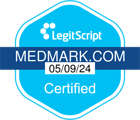Navigating the complexities of hydrocodone addiction and pain can be a daunting and often overwhelming journey, particularly when chronic pain is a constant companion. Understanding the next steps is crucial for individuals grappling with this dual challenge. If you’re under a doctor’s care and find yourself dependent on pain medication for relief, it might feel like you’re at a significant crossroads. This situation becomes even more pronounced when an injury or illness profoundly disrupts your daily life, turning pain medication into what seems like an essential tool for everyday functioning. In this article, we delve into understanding and managing hydrocodone addiction and pain, offering compassionate and effective strategies to help you on your path to recovery.
What is Hydrocodone Addiction?
Hydrocodone addiction can occur whenever you take pain pills including Vicodin, Lortab, and Norco. Many cough syrups include the ingredient hydrocodone, which is found in brands like Hycotuss, Tussicaps, and T-Gesic. If these are used for a long time, there’s a higher chance of becoming dependent on hydrocodone. This situation becomes even more complicated when you’re dealing with both pain and potential addiction, especially if your family doctor isn’t working with other healthcare specialists to provide a recovery plan that addresses all aspects of your health.
Common Problems with Hydrocodone Addiction

Those dealing with Hydrocodone addiction often share similar situations that cause frustration, depression, and even pain. Below are some of the most common scenarios.
Pain Management after Stopping Pain Medication
When a patient becomes addicted to hydrocodone, healthcare providers often focus on treating the addiction, sometimes stopping the pain treatment. This can be problematic, as the patient might still be in pain. Without proper pain management, the situation can worsen, leading to more complex issues like a serious pain disorder, depression, and ongoing addiction. It’s important for treatment to address both the addiction and the pain together, ensuring a more balanced and effective approach to recovery.
Pain Management Alternatives and Understanding Medication Risks
In exploring alternative pain management options, your doctor might consider different medications. One option is Ultram, also known as tramadol. While some believe tramadol to be less addictive, it is actually a synthetic opioid that impacts the brain in a manner similar to hydrocodone, codeine, or oxycodone. Therefore, it still carries a risk of addiction.
Another route could be prescribing higher doses of non-steroidal anti-inflammatory drugs (NSAIDs), like ibuprofen or naproxen. While these can be effective for pain relief, they may have harsh effects on the stomach, especially when used frequently or in high doses.
Acetaminophen, widely known as Tylenol, is often used for pain relief as well. However, it’s important to use acetaminophen responsibly, as excessive intake can lead to liver damage over time. Each of these medications has its own benefits and risks, and it’s crucial to use them under the guidance of a healthcare provider to ensure safe and effective pain management.
Harmful Self-Medicating
Upon the discontinuation of hydrocodone in a treatment plan, it’s crucial for healthcare providers to adopt a holistic approach that includes discussing any additional substances a patient might be utilizing. These could range from prescribed medications to other substances like cannabis, stimulants, or alcohol, which individuals may turn to for various reasons. Understanding the complete range of substances a patient uses is key to offering comprehensive care. This approach aids healthcare professionals in fully grasping the broader context of a patient’s health and lifestyle, which is instrumental in crafting a more effective and tailored treatment strategy. While some healthcare providers may not always delve into these details, incorporating this practice can significantly enhance the quality and success of patient care.
Pain and Addiction Management Strategies

In managing pain and addiction, there’s a shared responsibility among everyone involved. Patients should communicate any increasing reliance on pain medication. It’s also crucial for healthcare providers to consider consulting a physiatrist or pain specialist for more comprehensive care. Pain management can be complex, often intertwining with emotional and family dynamics. Sometimes, family members might misunderstand the situation as an exaggeration of symptoms, leading to strained relationships. The patient, feeling stigmatized by their continuous discomfort and limitations, might experience growing resentment.
In cases of hydrocodone addiction, it’s vital for the treatment plan to also address the underlying pain. Effective recovery often requires a coordinated effort among various healthcare professionals to guide the individual back to wellness. Patients might also need to explore alternative therapies like movement classes, hypnosis, acupuncture, or other methods. Both the pain and the addiction need regular monitoring and management to ensure a successful recovery journey.
Start Your Recovery Today at MedMark
If you’re feeling overwhelmed about managing your pain treatment, it’s advisable to ask for a referral to a specialized pain clinic or a physiatrist. These experts will likely review any existing x-rays or MRI images to better understand your condition. Discuss this step with your healthcare provider and express your interest in also addressing potential oxycodone or hydrocodone addiction. Once your pain is under control, you can seek specialized treatment for hydrocodone addiction. MedMark Treatment Centers offer comprehensive care for such addiction and are ready to assist you. Don’t hesitate to start your journey towards recovery today with MedMark Treatment Centers.




